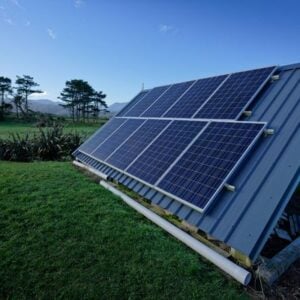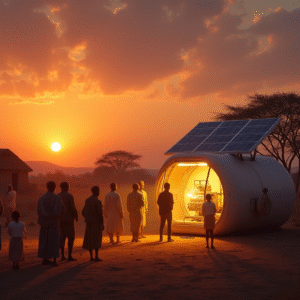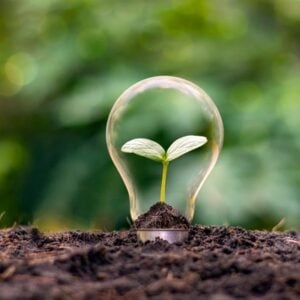make an informative summary paragraph wise excluding all the sub headings bullet points and internal links: Millions of sunny hours do not help if the lights still don’t come on. In Mauritania, national access to electricity is about 52 percent, in rural areas it falls to just 6 percent. That gap shapes community’ lives day to day; homework ends at dusk, clinics struggle to keep vaccines cold, and many households rely on diesel, kerosene, or firewood which is costly, polluting, and unreliable. To change this, the Government of the Islamic Republic of Mauritania in cooperation with UNDP are launching PERZI, a rural electrification initiative that will connect 200 remote communities. Feasibility work is completed for most of the planned sites, and environmental and social studies are under way. As rollout accelerates, PERZI is expected to reach more than 300,000 people, with a strong focus on women who make up roughly 60 percent of the community. Alongside construction, teams are training local technicians for installation and maintenance, and helping small businesses use electricity productively, so new power translates into lasting income and services. PERZI follows a simple approach: deploying decentralized solar mini grids and solar home systems where currently there is none. For Mauritanians that means reliable, affordable electricity where irrigation pumps run on schedule and cold storage protects food and supports local trade. Productive uses of energy, from milling grain to charging phones and running fridges in micro shops, help businesses grow and incomes stabilize. There is also a clear and immediate climate impact. Replacing diesel and kerosene with solar cuts greenhouse gas emissions immediately. The pilot is now moving from plan to delivery, with two solar mini grids already installed within the first 37 localities, both powered by solar energy, bringing about 3 megawatts of new capacity, reaching roughly 40,000 people, the majority women, and avoiding around 2,000 tCO2 each year. An opening ceremony held in Hodh El Chargui on September 23, 2025, marked the start of the field rollout, bringing together government, community representatives, and UNDP. Mauritania is one of the countries most exposed to climate stress in the region, faced with issues such as rising temperatures, drought, and advancing desertification. Decentralized clean power has the immense potential to make communities more resilient, keeping essential services running during heat waves and enabling safer water pumping, food storage, and communications when conditions are tough. Nationally, the initiative aligns with Mauritania’s energy strategy and climate commitments, including the objective to increase the share of renewables and significantly reduce emissions by 2030. Mauritania – Construction site with a metal-roof shelter, dirt ground, pallets, and blue storage containers. As PERZI grows, the approach stays simple and scalable, a modular kit of mini grids and home systems installed, innovative tools to map energy access monitored across regions, and community-led site choices. In practice, that means more communities connected each year, more hours of reliable power for homes and small businesses, and a model that other regions in Mauritania and across the Sahel can adapt without starting from scratch. This pathway is led by the Government of the Islamic Republic of Mauritania in collaboration with UNDP, with support from Italy through UNDP’s PISTA platform. UNDP’s PISTA is supporting the governments in their goal to bring clean electricity where it matters most, and unlock better health, stronger livelihoods, and real climate gains.
You are here: Home / cat / From Sun to Socket: Decentralized Solar Transforms Rural Life in Mauritania






